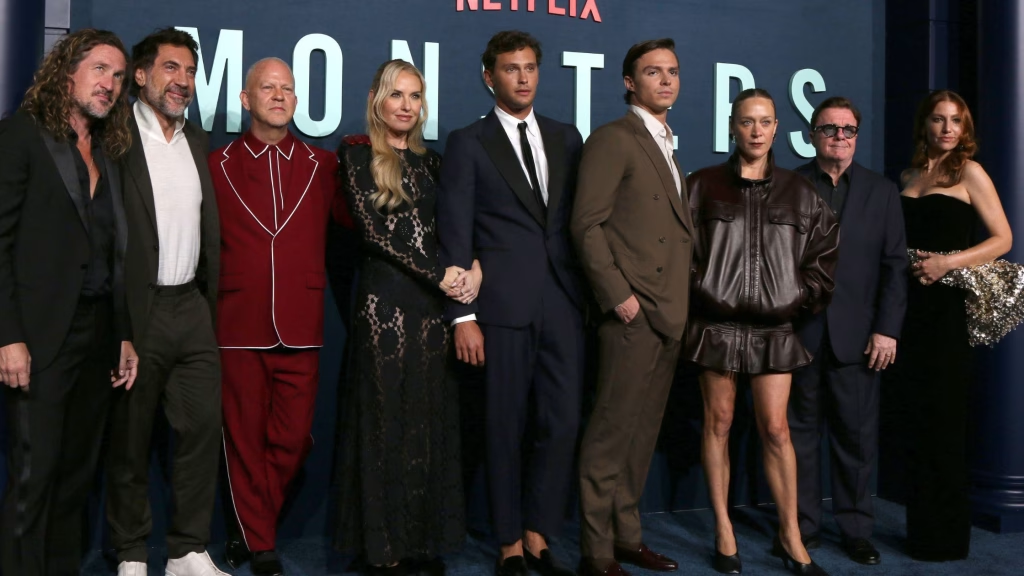Menendez Brothers Face Pivotal Parole Hearings After Three Decades in Prison
A Long-Awaited Moment
For the first time in more than 30 years, Erik and Lyle Menendez — convicted in the 1989 shotgun murders of their parents in Beverly Hills — will each appear before a California parole board this week.
Erik’s hearing is scheduled for Thursday, with Lyle’s to follow on Friday. Both will appear virtually from the Richard J. Donovan Correctional Facility in San Diego.
The proceedings could determine whether the infamous brothers — whose trial captured the nation’s attention in the 1990s — may be granted parole after decades of failed appeals and unsuccessful bids for retrial.
Why the Hearings Are Happening Now
Originally sentenced to life without parole, the brothers became eligible for release following a resentencing in May. A judge reduced their sentences to 50 years to life, paving the way for parole consideration.
This milestone comes after years of legal wrangling, shifting public perceptions, and renewed attention through documentaries and dramatizations, most recently a Netflix series.
What the Parole Board Will Weigh
The California Board of Parole Hearings is tasked with determining whether the brothers pose an “unreasonable risk of danger” to society if released.
Factors under review include:
- Prison conduct: Both brothers have participated in numerous rehabilitation programs and are classified as low-risk inmates, though they have accumulated minor violations over the years.
- Youth status: At ages 18 and 21 during the killings, they are considered “youth offenders” under California law, which requires consideration of their immaturity at the time.
- Accountability and remorse: While the brothers admit to the killings, they maintain they acted in self-defense after years of alleged abuse by their father, which prosecutors dispute.
The board will also hear from family members, prosecutors, and corrections officials. More than 20 relatives have formed a coalition supporting the brothers’ release, citing decades of good behavior, rehabilitative efforts, and remorse.
Opposition From Prosecutors
Los Angeles County District Attorney Nathan Hochman strongly opposes parole, arguing that Erik and Lyle have not fully accepted responsibility and continue to fabricate claims of abuse.
Hochman has compared the case to that of Sirhan Sirhan, the man who assassinated Robert F. Kennedy, whose parole was denied by Gov. Gavin Newsom in 2022.
Newsom’s Final Say
Even if the parole board grants release, the decision isn’t final.
Under California law, Gov. Gavin Newsom has the power to approve, modify, or overturn parole decisions for individuals convicted of murder. He has 30 days to act once the board’s written decision is issued.
Newsom’s record shows a willingness to block parole for high-profile cases, citing public safety and accountability concerns. His office has declined to comment on the Menendez hearings.
Life Behind Bars
Over the decades, both brothers have become leaders in prison rehabilitation initiatives:
- Erik helped launch support groups, taught meditation, and became fluent in American Sign Language to assist deaf inmates.
- Lyle co-founded mentorship and trauma-focused programs, and currently works on environmental improvements for the prison yard.
Supporters argue that these efforts demonstrate personal growth and a commitment to service.
Cultural Impact: The Netflix Effect

The Menendez brothers’ story has never left the cultural spotlight, but a new wave of interest has surged in recent years thanks to streaming. Netflix’s dramatized series about the case, released in 2023, reintroduced Erik and Lyle to a younger audience unfamiliar with the courtroom spectacle of the 1990s.
The show blended fact with fictionalized storytelling, sparking debates over whether it portrayed the brothers too sympathetically or shed necessary light on their claims of abuse. Coupled with a popular documentary, the dramatization ignited a fervent social media movement — including TikTok and Instagram campaigns advocating for their release.
This “Netflix effect” has given the Menendez case renewed relevance, shifting public perception from tabloid-style infamy toward a broader discussion about trauma, family violence, and the criminal justice system’s treatment of youth offenders.
FAQ: The Menendez Parole Hearings
Why are the Menendez brothers in prison?
In 1996, they were convicted of murdering their parents, José and Kitty Menendez, in their Beverly Hills mansion.
Why are they eligible for parole now?
Their original life-without-parole sentences were overturned in May. They are now serving 50 years to life, making them eligible.
Do they admit guilt?
Yes, both admit to the killings but insist they acted out of fear after years of alleged abuse. Prosecutors reject this claim.
Who decides if they are released?
The California Board of Parole Hearings makes the initial decision. However, Gov. Gavin Newsom can affirm, modify, or reverse it.
When will we know the outcome?
The parole board will issue a written decision sometime after the hearings. Newsom then has 30 days to weigh in.
The Bigger Picture
The Menendez case has long stood at the intersection of true crime, celebrity culture, and evolving attitudes toward family abuse. Now, it also highlights California’s unique parole laws, where the final word rests not with judges but with the governor.
The hearings this week mark not only a turning point for the Menendez brothers but also a test of how the justice system balances rehabilitation, accountability, and public safety — all under the renewed glare of cultural fascination.


